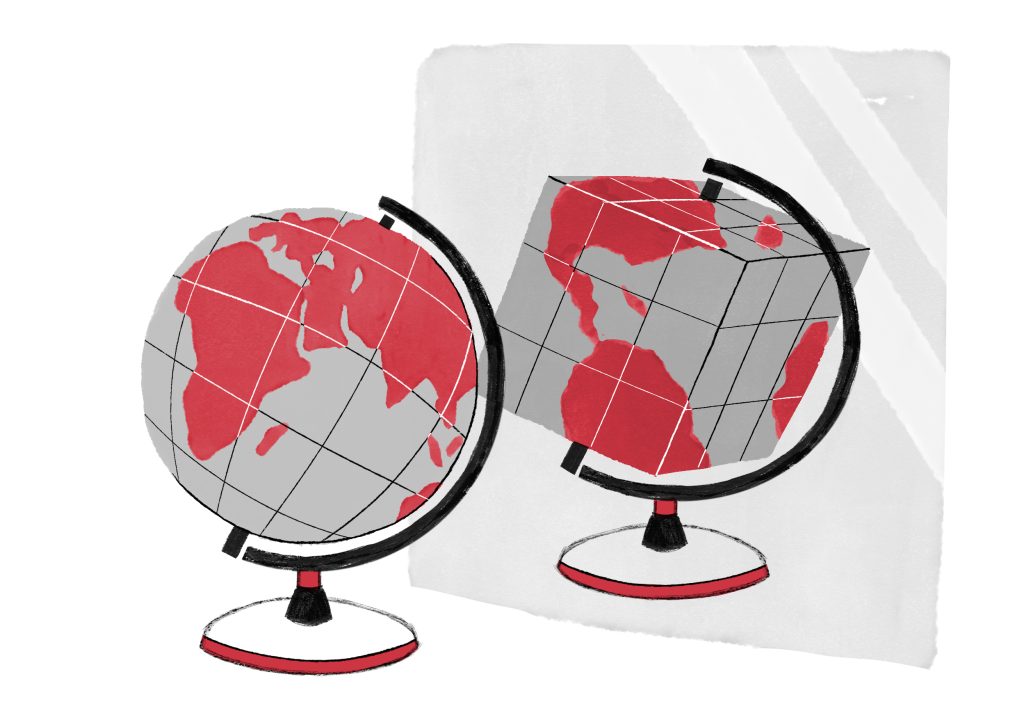A meaningful understanding of the (mis)perception of risk and cognitive biases of human behavior bears relevance in the context of foreign policy decision-making.
Assuming that humans are rational and that behaviour consists of a calculation of maximizing benefits and minimizing costs leads to an insufficient understanding of decision-making. Findings from cognitive psychology reveal that human behaviour is not always the result of a rational decision-making process; it is influenced by personalities and beliefs, cognitive capacities and biases, and the environment – including culture and history. The discipline of foreign policy analysis increasingly applies these findings to analyze the actions of states on the global stage.
Risk perception is an essential factor in decision-making and must be considered when analyzing political leaders’ actions. Two points must be made to understand this concept. First, with the help of prospect theory, it is possible to model how people make decisions when presented with alternatives that involve risk, probability, and uncertainty. Second, reality is not an objective experience but a subjective one, as perception is an individual’s construal of a situation. Thus, risk can be over- or underestimated; an underestimation of risk, manifesting as overconfidence bias, is widespread and troublesome.
Prospect Theory and military alliances
Prospect theory, developed by Daniel Kahneman and Amos Tversky in 1979, stands on three pillars: first, people give a greater negative value to loss than positive value to gain, thus we are loss-averse; second, gains and losses are perceived relative to a reference point (whether the status quo or the expected outcome); third, there’s diminishing sensitivity to additional losses or gains. Further research claims it is plausible these three qualities have an evolutionary explanation.
The theory makes several claims about risk-averse or risk-taking behaviour; applied to foreign policy, it holds that decision-makers tend to engage in risky behavior when in a disadvantageous situation vis à vis other state, as they have a strong inclination to reverse their losses and avoid additional losses. If a policy choice is going well instead, decision-makers will display risk aversion.
One domain of foreign policy that prospect theory can help to explain is military alliances. States are risk-takers when they form military alliances to respond to a perceived loss situation. The reference point is the level of threat to state security, and losses and gains are, respectively, increases and decrease in dependence on other states. A multilateral alliance is riskier because there tends to be stronger commitments and a greater number of allies, which means a cost in autonomy; conversely, a bilateral alliance means greater freedom of action. Therefore, prospect theory predicts that states in a perceived domain of loss are more likely to seek a multilateral alliance than those in a domain of gain. This analysis is confirmed when observing two scenarios after the Second World War in Europe and Asia.
In the immediate aftermath of the War, Europe could have been a ground of confrontation between the US and USSR due to the power vacuum Germany’s collapse left. On the other hand, in Asia, the US had absolute control of Japan and had a military and nuclear advantage sufficient to be secure from (weaker) threats from the USSR or China. Hence, the US was in a loss domain in Europe but in a gain domain in Asia. This is why NATO – a ‘risky’ multilateral military alliance – was formed between the US and Europe, whereas no organisation was established between the US and Asia.
The second scenario is an example of the US showing risk-taking behaviour vis-a-vis Asia. In 1953, as the French were losing in Vietnam against the Viet Minh, the US proposed a “united action” plan or a collective defense treaty like NATO in Southeast Asia. From the US perspective, the threat to security was higher than immediately after WWII because the Viet Minh was a communist group that could have spread their ideology to other Southeast Asian countries (and this would have been an implicit victory for the USSR too). For the US, this security threat justified the risk of pursuing a multilateral alliance with Asian countries. However, due to opposition from the United Kingdom and France and the USSR and China advocating to alleviate regional tensions, an alliance in Southeast Asia that mimicked NATO did not materialize.
Overconfidence bias
Until now, risk has been presented as an ascertainable factor in the decision-making process – something leaders accurately grasp and embrace or avoid depending on whether they see themselves as being in a loss domain. But risk can be misperceived, and when underestimated, it is a mark of the overconfidence bias. Like other biases, overconfidence bias exists because of a combination of motivational and cognitive factors: including the tendency to hold favourable views of the self, to overestimate one’s control over events, and to misunderstand chance and statistics. The result of this bias is to display risk-taking behaviour. The inability to assess risk and the tendency to downplay it can lead to greater negative outcomes than overestimating risk; a lack of preparedness and contingency plans creates losses.
There have been several examples of overconfident leaders in history. While there can be an advantage to confidence, including persuasion and bluffs, overconfidence often causes failure. Two disastrous examples from the past are Napoleon’s and Hitler’s marches to Moscow: both were military campaigns that suffered heavy losses and marked a turning point toward their eventual military defeat. Today’s ongoing Russian war in Ukraine could also be deemed a result of Putin’s overconfidence.
Reviewing Vladimir Putin’s declarations and actions vis-à-vis Ukraine, experts say the expectation was a quick and decisive victory soon after the unprovoked aggression launched on 24 February 2022. Instead, since the start, the Russian military has suffered repeated defeats and is still fighting well over a year later. Putin’s invasions in Georgia in 2008 and Crimea in 2014 set his confidence high, though this time, he invaded a prepared and resilient country and faced harsher reactions from the European Union and the West more broadly. On the one hand, he overestimated Russia’s capabilities: the troops which crossed the border on 24 February were too few for the task, and we have witnessed men fleeing military mobilization too. On the other, he had misperceived Ukraine’s strong sense of national identity.
Overcoming bias
Foreign policy decision-makers must engage in controlled, effortful decision-making processes to avoid misjudgment and bad predictions. Some ways to make better decisions would be to assess the weight of information relevant to any action, integrate information for alternative courses of action, and compare alternatives before choosing. This is facilitated when decisions are not made by an individual alone, but more actors are involved. There should be debates and public consultation on potential decisions to include voices that may be more truthful about uncertainties and offer constructive criticism. Executives should approach impartial experts to provide in-depth knowledge on capabilities, events, and risk factors. Finally, executives can be trained to overcome this bias to avoid falling into the illusion that risks as a consequence to action are low.
Training or not, human decision-making is not rational in pursuing only maximum benefits with minimum costs; it is especially vulnerable to the perception of risk. As risks on the global political stage are many, and threats to state security constitute one of the greatest, leaders are charged with making careful and strategic decisions. Cognitive psychology, models, studies on heuristics, and some of the suggestions presented above are solid grounds for countering misperception and its negative impact on successful foreign policy decision-making.

Francesca is a 2023 Master of Public Policy candidate at the Hertie School. Italian, with various international experiences, she completed an International Relations BSc and Global Politics MSc. She is interested in international law and policy-making, as well as the geopolitics of the Arctic region. In her free time, she enjoys practicing sports, cooking, and exploring Berlin.
Views expressed by the author(s) do not represent the Hertie School.
